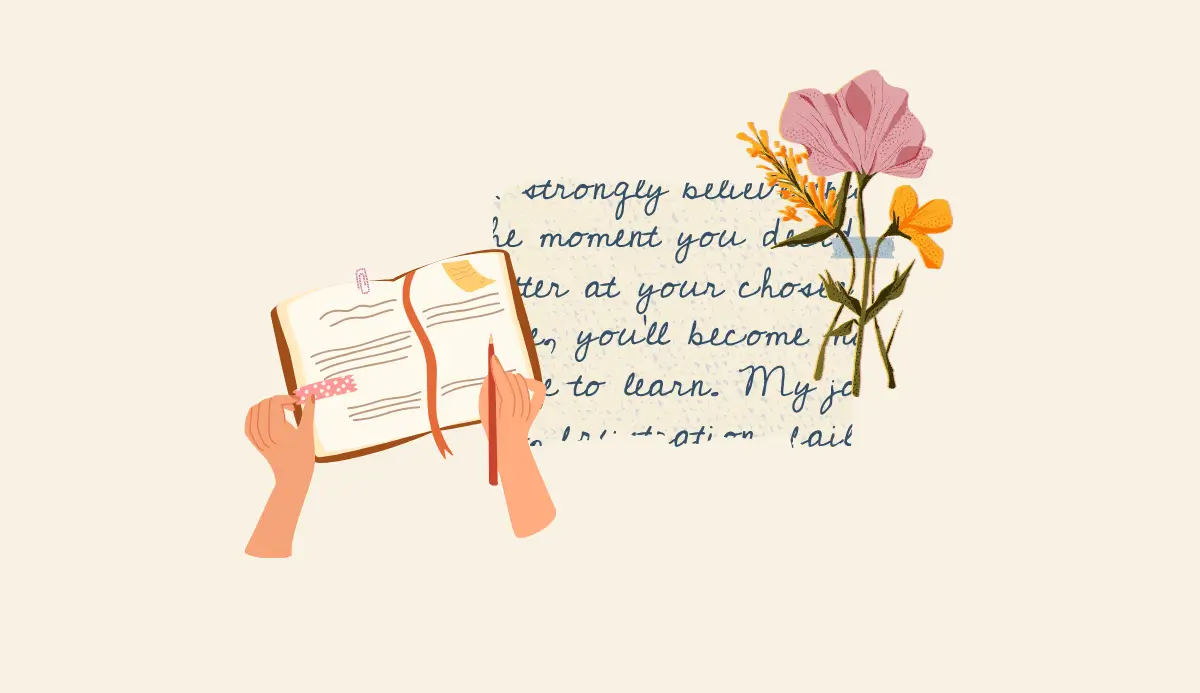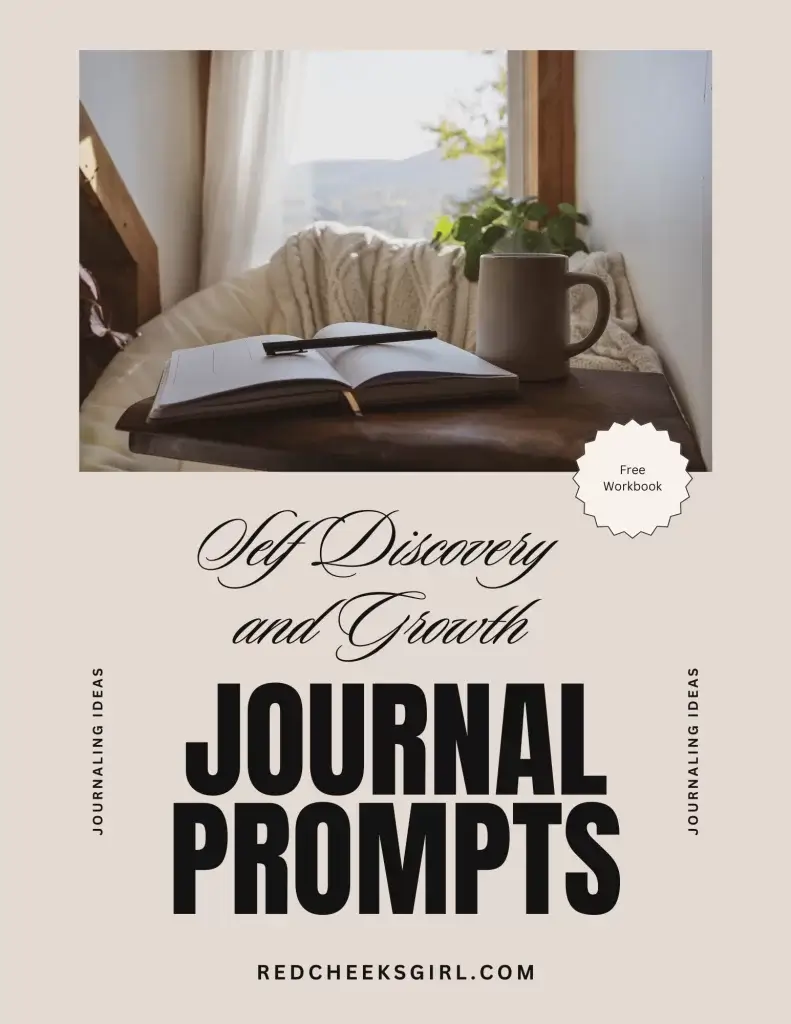
Embarking on a journey of self-discovery is both enlightening and transformative. Journaling serves as a powerful tool for self-reflection and personal growth, guiding individuals toward a deeper understanding of themselves. The act of journaling cultivates self-awareness, helping you to identify and dismantle limiting beliefs that hinder progress.
This comprehensive guide provides 100 thought-provoking journal prompts spanning topics like self-identity, emotions, goal-setting, relationships, life’s biggest questions, daily habits, creativity and more. These prompts are designed to gently guide you on a journey of self-discovery, nurture self-love, and propel your personal growth.
Table of Contents
Evidence-Based Benefits of Journaling
Before diving into the prompts, it’s helpful to understand the myriad science-backed benefits of journaling:
📘 Reduces anxiety and depression: Numerous studies show that regularly expressing your thoughts and feelings through writing can alleviate symptoms of anxiety, depression and other mental health conditions. Journaling provides an outlet to process difficult emotions.
🧠 Boosts mood and affect: The act of journaling has been linked to improved mood, greater emotional well-being and increased Life satisfaction. Reflective writing allows you to reframe negative perspectives in a more positive light.
💆♀️ Enhances self-awareness: Purposeful journaling deepens your self-knowledge by revealing unconscious thoughts, behaviors and emotional patterns. This cultivates invaluable insight and growth.
💓 Increases self-compassion: When you write with an attitude of openness and non-judgment, journaling helps you treat yourself with more kindness, empathy and acceptance of flaws.
🌳 Provides clarity and focus: Getting your swirling thoughts and feelings down on paper clears your mental space. This makes room for renewed concentration, decision-making and problem-solving.
🙏 Reduces stress: From processing trauma to releasing pent-up worries, journaling is a healthy stress management tool. It offers perspective and allows you to gain control over runaway thoughts.
How to Get Started With Journaling
Keep a journal just 15-20 minutes per day
Regular practice
Dr. Tasha Eurich, an organizational psychologist, recommends committing to a regular journaling practice and making it a habit.
“Like meditation, consistency is key. And like meditation, we can start small with an easy, attainable goal.”
Putting pen to paper
Dr. Natalie Goldberg, author of “Writing Down the Bones“, recommends using a pen and paper for a more visceral connection:
Approach
Come to your journal without judgment and with an open, curious mindset. Don’t worry about perfect grammar or making sense – this is a safe space for authentic self-expression.
Use free journaling prompts for self-discovery
So grab your favorite pen and notebook, get comfortable, and prepare to meet your most insightful self through the potent practice of journaling.
100 Journal prompts for self-discovery and growth
- What do I excel at without much effort?
- Which tasks do I consistently avoid?
- What feedback do I frequently receive from others?
- What activities make me lose track of time?
- When do I feel most fulfilled?
- What skills do I bring to a team?
- What tasks do I dread the most?
- How do I handle stressful situations?
- What personal achievements am I most proud of?
- When do I feel most insecure?
- What are my top three strengths?
- What areas do I need to improve in?
- How do I respond to constructive criticism?
- What subjects or activities do I learn quickly?
- What are my biggest sources of frustration?
- What motivates me to take action?
- What demotivates me?
- How do I react to failure?
- What goals have I consistently achieved?
- What goals have I struggled to achieve?
- What are my core values?
- How do my strengths align with my values?
- What situations make me feel out of control?
- When do I feel most confident?
- What habits contribute to my success?
- What habits hinder my progress?
- How do I handle change?
- What tasks do I find most rewarding?
- What are my biggest fears?
- How do I cope with setbacks?
- What skills do I want to develop?
- What areas do I need more knowledge in?
- When do I feel most anxious?
- How do I manage my time?
- What feedback do I often disregard?
- What challenges excite me?
- What roles have I thrived in?
- How do I build relationships with others?
- What makes me feel valued?
- What makes me feel undervalued?
- What are my top priorities?
- How do I stay motivated?
- What have I learned from past mistakes?
- How do I celebrate my successes?
- What role does fear play in my decision-making?
- How do I balance work and personal life?
- What do I want others to remember me for?
- What new challenges am I willing to take on?
- How do I handle multiple tasks?
- What inspires me to be better?
- If you met a former version of yourself from 5 years ago, what would you say to that person?
- If you had to introduce yourself to a group of strangers using only 5 words, what 5 words would you choose?
- If you had unlimited resources and no obstacles, what would your dream life look like in 5-10 years?
- If you had one entire day to spend doing anything, how would your ideal “day in a life” look?
- Describe a recent situation that caused you significant stress. How did you cope?
- List 10 simple things that brought you happiness today.
- What’s one habit you wish you could break or develop?
- What areas of my life need more attention?
- What travel destinations do I want to explore?
- What is my favorite travel memory and why?
- Are there any adventures, trips or experiences you want to make time for?
- How do I feel about solo travel?
- What cultural experiences am I most interested in?
- How do my travel experiences shape my perspective on life?
- What motivates me to grow?
- What financial goals do I have?
- How do I handle constructive criticism?
- What new experiences do I want to try?
- What books or resources can help me grow?
- What books do I want to read?
- What courses or workshops do I want to attend?
- What skills do I need for my dream job?
- How do I measure my progress?
- How can I improve my physical health?
- What are my biggest strengths?
- What are my most significant weaknesses?
- What habits contribute to my weaknesses?
- When do I feel most vulnerable?
- What am I passionate about?
- What values are most important to me?
- How do I handle stress?
- What is my biggest fear?
- What steps can I take to overcome my fears?
- What new skills have I learned this year?
- What are my long-term goals?
- How do I balance work and personal life?
- What areas do I need more knowledge in?
- How do I build better relationships?
- How do I support my personal growth?
- What inspires me to improve?
- How do I stay organized?
- What does success look like to me?
- How do I stay focused on my goals?
- What actions can I take to improve my skills?
- What mentors or role models can help me grow?
- What changes do I need to make for personal growth?
- What do I need to let go of to grow?
- Is there a dream you’ve given up on? What would it take to rekindle it?
- Express gratitude to someone who has made a positive impact on your life.
- What is one thing you want to accomplish in the next six months?
Download Free PDF: 100 Journal Prompts for Self Discovery and Growth
Starting Your Journey
Journaling for self-discovery can be a powerful tool in uncovering your authentic self and setting yourself on a path to personal development. By using journal prompts, whether they are daily journal prompts or deep journal prompts, you can begin to explore your thoughts, feelings, and aspirations in a structured way. Reflecting on three things you’re grateful for each day, or writing positive affirmations about your future self can help build resilience and reinforce a positive mindset. If you’re new to journaling or feeling stuck, journal prompts for self-discovery can help you get started and stay motivated. Remember, journaling benefits go beyond just writing – it’s about discovering who you are and who you want to become.
Conclusion
If you’ve made it through this lengthy guide, you’re well-prepared to jumpstart your self-discovery journey through journaling. But remember that consistency and open-mindedness are key to reaping the benefits. Approach each prompt with radical self-acceptance and non-judgment.
There’s no need to work through all 100 prompts at once either! Let the ones that resonate most catch your attention first. Return to this well of thoughtful questions over weeks and months. Pay close attention as your reflections, perspectives and self-awareness shift and expand through this process.
Spruce up your phone with our collection of over 20 love-themed wallpapers that perfectly capture th
I’ve always found that ending my day with gratitude completely transforms my sleep quality and
Transform your desktop with our curated collection of stunning November wallpapers. Download free HD






Pingback: 10 Self Discovery Activities When Friends Are More Successful